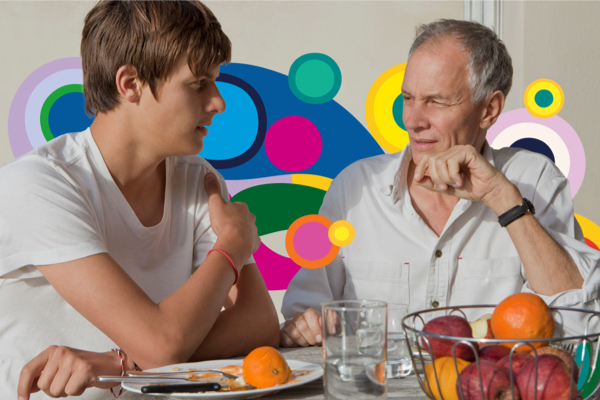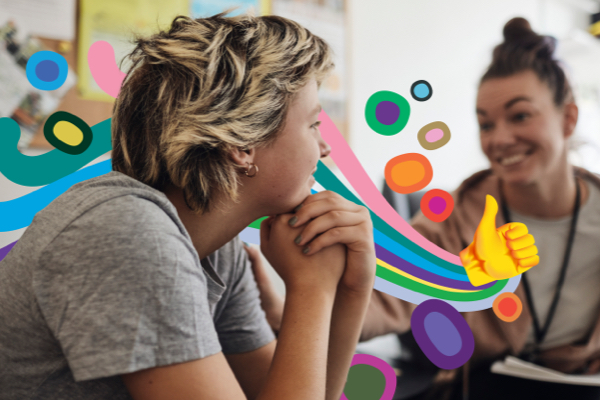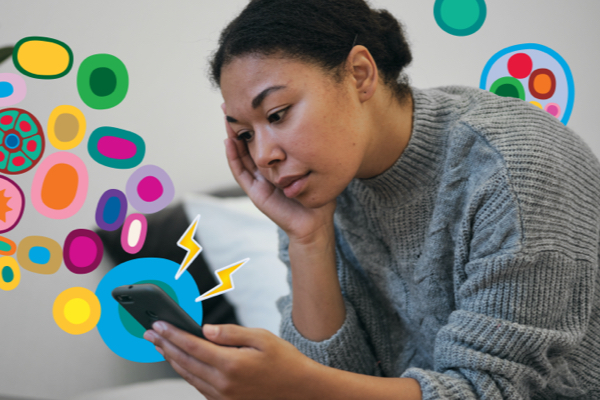Young people and alcohol

Younger people are more likely than any other age group to consume alcohol that exceeds the risk guidelines by consuming on average more than 4 standard drinks on a single day at least monthly, or more than 10 standard drinks in a week.
The Australian guidelines advise drinking no more than two drinks a day to avoid alcohol-related disease and injury over the long term, and no more than four standard drinks in a single sitting to avoid alcohol-related injury.
The impact of alcohol on young people
The risk of drinking alcohol for young people is they are more vulnerable to damage due to their developing brains and bodies.
Alcohol use can harm the individual as well as the people around them, both directly and indirectly.
Short-term effects include:
slowing or depression of the central nervous system which affects mood, behaviour or self-control
altered or risky behaviours due to impaired judgement
hangovers (including fatigue, weakness, headaches, anxiety and irritability)
nausea, vomiting and diarrhoea
conflict between friends and family
diuretic effects leading to excess fluid loss and dehydration
decreased sex drive and performance through a reduction in testosterone in men
high intake of calorie-dense, nutrient-poor items (including poor food choices)
sleep disruptions
alcohol poisoning
alcohol-related injuries.
Chronic health conditions may accumulate over time with the overuse of alcohol intake. They may include:
ongoing problematic alcohol use
mental health issues
alcohol-related brain injury or impairment
lower immune response, increasing susceptibility to illness
heart disease
high blood pressure
certain cancers
cardiovascular disease
fatty liver disease or alcoholic hepatitis
ovulation and menstrual cycle disruptions
poor pregnancy health outcomes, including preterm birth, low birth weight and foetal alcohol syndrome
addiction or dependency.
Secondary risk factors
Alcohol also increases the chance of secondary risk factors for young people.
A secondary risk factor may include subtle ripple effects in the lives of young people like:
delayed career opportunities
being a victim or offender of sexual assault
drink spiking
violence
drink driving accidents
antisocial behaviour
mental health issues.
For more information, Positive Choices is an online portal with information, tools and resources on the harms of alcohol and other drugs for parents, teachers and school staff, and students.

24/7 Medibank Mental Health Support
Medibank health insurance members can chat to a mental health professional about how they feel and ask questions about a range of mental health concerns for themselves or a loved one and get guidance on what they can do next. Chat online or call 1800 644 325 anytime of the day or night, 7 days a week at no extra cost.~
Treatment options
Different people will have different treatment needs, which depends on the nature and complexity of their relationship with alcohol.
There’s a range of treatment and support options available if you or a young person you care about is experiencing problems associated with alcohol.
Some people may need a little help while others may need intensive treatment options, such as residential rehabilitation.
Each state and territory operates local alcohol and other drug telephone services that offer support, information, counselling and referrals to services. For free and confidential advice about alcohol and other drugs, call the National Alcohol and Other Drug hotline: 1800 250 015. You will automatically be directed your local Alcohol and Drug Information Service.
Online Counselling is a free service where you can talk with a professional counsellor about your own alcohol use or that of someone you care about. You can chat online or email your questions to a counsellor. The service is confidential and available 24 hours a day, seven days a week across Australia.
Family Drug Support (FDS) is a national service for families dealing with drug and alcohol. FDS provides a toll free, 24-hour national telephone support line, as well as support groups, education programs, counselling and bereavement services for families. Phone: 1300 368 186.
If you think you may have an issue with alcohol, asking for help is an important first step to making a change.
Where to get help
If your life or someone else’s is in danger, call 000 immediately.
If you’re in distress and need help, call Lifeline on 13 11 14 for 24/7 crisis support.
For non-emergency support, your GP or regular health practitioner is often the best place to start. They will be able to assess your individual situation and recommend the best next steps for your recovery.
Medibank health insurance members can chat to a mental health professional about how they feel and ask questions about a range of mental health concerns for themselves or a loved one and get guidance on what they can do next. Chat online or call 1800 644 325 anytime of the day or night, 7 days a week at no extra cost~.
Remember that help is always available, no matter the situation.
How can we help?
I want to know how my cover supports mental health
I need help and want to talk
Related articles
Things you need to know
~Some referred services may involve out of pocket costs and waiting periods may apply.
While we hope you find this information helpful, please note that it is general in nature. It is not health advice, and is not tailored to meet your individual health needs. You should always consult a trusted health professional before making decisions about your health care. While we have prepared the information carefully, we can’t guarantee that it is accurate, complete or up-to-date. And while we may mention goods or services provided by others, we aren’t specifically endorsing them and can’t accept responsibility for them. For these reasons we are unable to accept responsibility for any loss that may be sustained from acting on this information (subject to applicable consumer guarantees).


